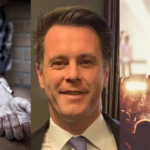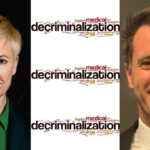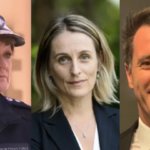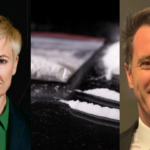The NSW Drug Summit: Where Other Labor Leaders Triumphed, Minns Fears to Tread
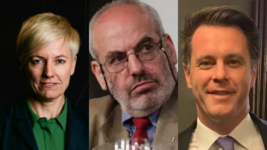
A key objective of the 2023 NSW Labor policy platform stated that “a top priority” for the party on election would be to hold a state drug summit, so the experts can “advise on a wide variety of policy challenges”.
This would be the second such forum held in this state with the first established by Labor in 1999.
However, three weeks ago, NSW premier Chris Minns spoke to the Murdoch press, which led to the understanding that the summit has been pushed back closer to the next election, and the Labor leader further stressed that he feels he has “no mandate” to advance drug decriminalisation.
Having just become law in the ACT, decriminalisation is not the only law reform drug policy experts seek, but it is their most prominent recommendation.
Indeed, the Uniting Church Synod NSW/ACT has been campaigning for this change since 2018, with more than 70 civil society, legal and medical organisations supporting it.
“We do not have a date for a drug summit,” NSW MLC Cate Faehrmann told the state upper house on Tuesday. “But we do have the premier of NSW making captain’s calls in reaction to sensationalist stories on the front page of The Daily Telegraph.”
“Suddenly, the government ‘has no plans’ and ‘no mandate’ to remove criminal penalties for the possession of small quantities of drugs and move to a healthbased approach to saving lives,” the state’s chief drug law reforming politician added.
And the Greens MP went on to point out that then Labor leader Bob Carr also ran on a 1999 election promise of a NSW drug summit, and did so within two months of taking office, whilst eminent drug law reformist Dr Alex Wodak indicates that Carr wasn’t the first Labor leader to make such progress.
Fearless leaders forge change
As Wodak recalls, the 1999 NSW Drug Summit came about as a “political accident”, as the health minister of the day had made an incorrect statement about the state’s needle and syringe program (NSP) to the Murdoch press. And in response to outcry, then premier Carr promised an inquiry.
The Harm Reduction Australia ambassador further outlined that Carr had stated that a medically supervised injecting centre (MSIC) wouldn’t be on the agenda, as an inquiry had already rejected the proposal, yet an act of civil disobedience reversed this, and the Kings Cross facility was established.
Due to a late-1990s heroin overdose crisis, Sydney’s Wayside Chapel set up a “tolerance room” in its basement to act as a safe space to inject, which drove political support for an MSIC, in a similar way to that of Wodak’s unlawful needle exchange setup of the mid-1980s, which triggered lawful NSPs.
“Before the 1999 NSW Drug Summit, the Hawke government held a drug summit on 2 April 1985,” Wodak further remembered. “Hawke promised a drug summit during an election campaign radio interview when his government was struggling.”
“All eight governments agreed that ‘harm minimisation’ would henceforth be Australia’s official national drug policy,” the doctor told Sydney Criminal Lawyers. “There were huge benefits from this drug summit”.
Lifesaving reductions in harm
Harm reduction is a human rights and evidence-based approach to minimising the negative impacts that are associated with the use of illicit substances.
The successful roll out of NSPs in the late 80s prevented a broader HIV crisis, whilst the Kings Cross injecting facility has saved thousands of lives.
As ex-premier Carr recalled at a 2022 drug law reform forum, he’d been set to take a zero-tolerance law enforcement approach to the drug issue prior to his summit, but Wodak had talked him out of it. And today, he recalls establishing the Uniting MSIC in the Cross as one of his greatest achievements.
“The NSW and national drug summits were extraordinarily successful in policy terms and politically, although only the controversial decisions received publicity,” said Wodak. And he added that despite this, drug policy is still regarded “as a can to be kicked as far down the road as possible”.
According to the doctor, the outcomes of these summits revealed “the abject failure of conventional drug policy can at least partially be reversed when the political system briefly gives drug policy its undivided attention”.
“Consequently, drug treatment was greatly expanded and vastly improved and attitudes regarding people struggling with alcohol or drug problems became much more compassionate,” Wodak related. “They moved from being regarded as ‘them’ towards being regarded as ‘us’.”
The pressure is only mounting
But as Faehrmann told parliament this week, the Labor drug summit promise had a sense of urgency that indicated a short wait period of months, not entire years. And as she’s about to introduce a drug decriminalisation bill, she’s also committed to pushing to see a summit run early next year.
The Greens harm reduction spokesperson further stated that the current form of the premier lacks the courage of Carr and Victorian Labor leader Dan Andrews, who both established MSICs, while this also applies when considering the ACT Labor Greens government has just enacted decriminalisation.
Uniting is continuing to raise its opposition to holding a drug summit late in the term, as well as to the suggestion that the roundtable wouldn’t consider decriminalisation: the removal of criminal sanctions against people found in possession of a personal amount of an illegal drug.
Yet, in another sign that Minns is taking on the icy edge of a Coalition leader being called on to contemplate changes to drug law, following reform group Unharm having this week called on him to implement pill testing prior to this summer’s festival season, the premier shot this down as well.
Calls for pill testing have been at the fore in this state since five young people died in drug-related circumstances at festivals over the summer of 2018/19. And while the ACT has rolled out fixed site testing in Canberra, the NSW government refuses to do so despite the advice of the state coroner.
Both the NSW Coroner and the Berejiklian government-commissioned special inquiry into the drug ice called for decriminalisation, amongst a plethora of other drug reforms, and Faehrmann, as well as others like her, question why the government doesn’t simply implement their recommendations.
Lost votes will result
Dr Wodak recalled that while former PM Tony Abbott isn’t the only Australian politician to break election promises, although the Liberal leader “certainly perfected the art”. And even though voters have shown that they don’t like “being treated as mugs”, some pollies continue to try it on.
“So, premier Minns is kidding himself if he thinks there won’t be some electoral cost to his government if he ends up reneging on a clear promise made several times before the elections to conduct a drug summit if elected in 2023,” the veteran drug law reformist declared.
Wodak added that in Australia, where drug overdose deaths have been on the rise for the last two decades, the advent of the fentanyl crisis in the US continues to be a threat over here, whilst governments still refuse to regulate vaping, even though its much safer than legal cigarettes.
“The world is moving from criminalising to decriminalising illicit drugs with significant international movement to regulating recreational cannabis,” Dr Wodak made clear in concluding.
“It would be really bizarre if the Minns government decides that having a NSW drug summit once every 25 years is too often.”


